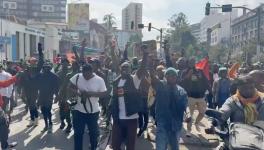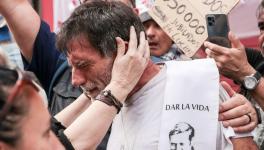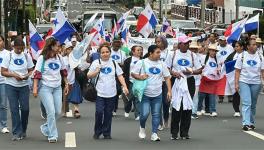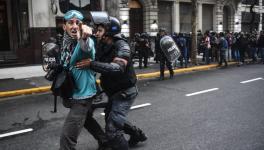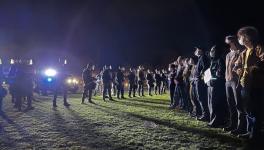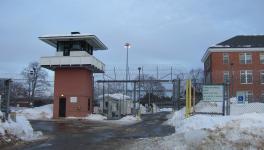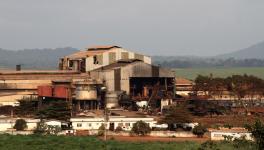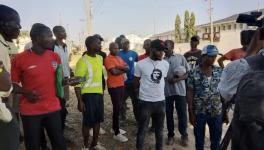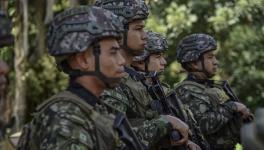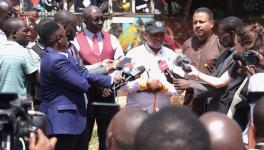Colombia’s Historic National Strike Set to Continue for Third Day
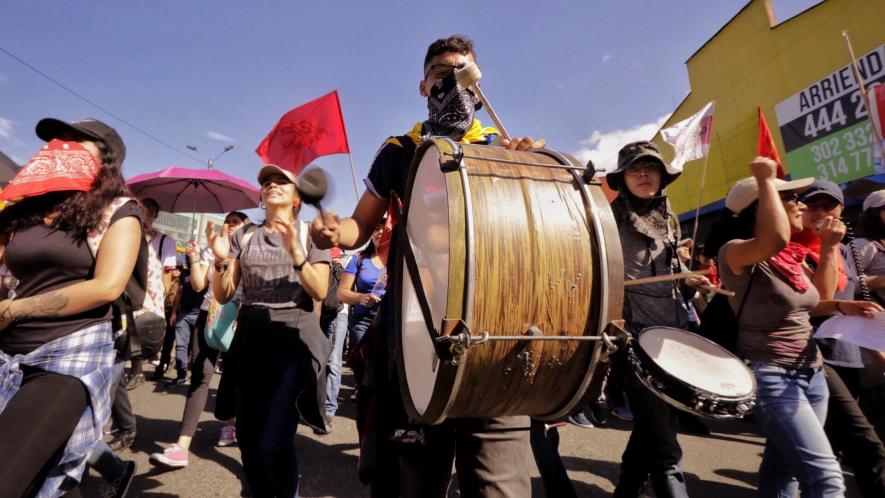
Tens of thousands marched in Medellín, Colombia on November 21. Photo: Colombia Informa
Colombia is the latest country to join the wave of people’s uprisings against neoliberalism and the politics of war, capital accumulation and exclusion. After months of preparation, hundreds of organizations and movements staged a national strike on November 21, Thursday, and achieved a historic result. The strike is set to continue for a third day on Saturday.
Massive mobilizations were held in Bogotá, Cali, Medellín, Popayán, Cúcuta, Santander de Quilichao, Barrancabermeja, Soacha, Ocaña, Sibundoy, Buenaventura, Manizales, as well as in Buenos Aires, Argentina, on Thursday. Protesters blocked major roads and transportation terminals and marched for hours to express their discontent with the government of Ivan Duque.
In many cities, the demonstrations were met with violent repression from security forces. The infamous Mobile Anti-Disturbance Squadron (ESMAD), which specializes in repression, attacked protesters with tear gas, stun grenades, water cannons and unconventional weapons, gravely wounding dozens. They also detained over 100 people. Dozens of videos circulated across Twitter showing ESMAD agents using excessive force against protesters while detaining them. In one video, a protester was seen being dragged to the ground by the agents. When a woman nearby with her bike tried to help the protester, the ESMAD agent kicked her square in the head.
? #URGENTE ESMAD hace uso desproporcionado y arbitrario de la fuerza en el marco de la protesta social del 21 de noviembre. Exigimos el respeto a la integridad física y mental de las y los manifestantes en su derecho constitucional a la protesta social. #ParoNacional pic.twitter.com/S4027BUF2g
— Campaña Defender la libertad (@DefenderLiberta) November 21, 2019
In response to the violent siege against protesters, people took to the plazas, streets, and street corners across the country to bang on pots and pans (a form of protest called the cacerolazos) to reject the repression and continue the mobilization.
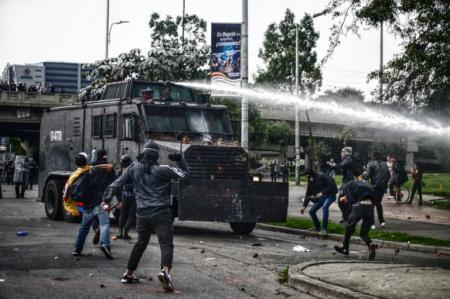
ESMAD attacked protesters at the National University of Colombia. Photo: Colombia Informa
The strike continued on Friday, November 22. Several transportation terminals were blocked in the morning. In the afternoon, people across the country returned to the central plazas to participate in cacerolazos to continue raising the demands and grievances of the strike.
In Bogotá, thousands gathered at the Plaza Bolívar with their pots and pans, along with key leaders of opposition political parties. But the cacerolazo was short lived. ESMAD and police units arrived and fired tear gas and stun grenades into the crowd and began to arbitrarily detain people.
Following the violent eviction, Bogotá’s mayor, Enrique Peñalosa, declared a curfew for 10 hours, starting at 8 pm. However, in spite of the curfew, by night, tens of thousands again were in the streets in another cacerolazos. In certain zones of Bogotá however, the curfew notice was accompanied by heavy militarization. Units of the Colombian army were deployed in different sectors of the city in order to ‘maintain calm and security.’
Organizations reported that in neighborhoods in the south of Bogotá, where mobilizations have been especially strong, violent shock groups have been organized to loot stories and homes, wreak havoc, instill fear and delegitimize the mobilization effort. Many are suspicious of the actions as the same areas that were heavily militarized now apparently does not have any forces to control these groups. The groups’ actions appear to be fulfilling the task of engendering a volatile situation in which even those who are opposed to the police and the armed forces demand their presence.
#ElParoSigue ?| El masivo cacerolazo también se vive en los barrios de #Medellín. 22N barrio Buenos Aires pic.twitter.com/fWfdlavWwg
— Colombia Informa (@Col_Informa) November 23, 2019
The strike is set to continue on Saturday and the repressive measures by Duque’s government are likely to intensify. The People’s Congress wrote in a declaration “We are not scared, our conviction to the struggle for change is firm, for a national project for Dignified Life; the slogans of the strike against the packetazo, for the defense of life and the territory along with the nonconformity due to the precarious economic situation that makes the people suffer more every day and fight to dignify their situation and survive the inhumane situations. The action has surpassed its initial expectations and people have called to continue manifesting their rebellion and decided to maintain an indefinite strike.”
Get the latest reports & analysis with people's perspective on Protests, movements & deep analytical videos, discussions of the current affairs in your Telegram app. Subscribe to NewsClick's Telegram channel & get Real-Time updates on stories, as they get published on our website.









